ICL2013 Keynotes
- German Dyakonov, Russia
- Vassil N. Alexandrov, Spain
- Ezendu Ariwa, UK
- David Guralnick, USA
- Hanno Hortsch, Germany
- Mark Schulz, Australia
- Alexander Soloviev, Russia
German Dyakonov
Rector of Kazan National Research Technological University
Global Challenges in Engineering Education and Engineering Training at the Research Technological University
Vassil N. Alexandrov
Barcelona Supercomputing Center, Spain
Technological Advances in Interactive Collaborative Learning
Nia Alexandrov, Raul Ramirez and Vassil Alexandrov
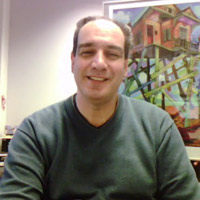
The talk will highlight key elements of the authors book - Technological Advances in Interactive Collaborative Learning – published in 2013. The focus will be on technological innovations, on how Web 2.0 technologies can enhance collaborative learning on novel pedagogical and methodological approaches that underpin the technological advances and facilitate collaborative learning. The talk will outline how technology, pedagogy, and management are necessary components for the future of higher education, cover cutting-edge research on the use of Web 2.0 technologies together with the exploration of novel educational paradigms and present examples of new management approaches that enhance the learning process.
Drawing on our work in computational science and e-learning, this talk will show how interactive collaborative learning can help scientists and researchers acquire the multidisciplinary skills to understand and use complex mathematical models, high performance computing, and other advanced technology necessary in today’s interconnected, data-rich world. Best practices through case studies and examples from computational science area will be given.
Ezendu Ariwa
Professor at London Metropolitan University, UK
Visiting Professor at Gulf University (Bahrain), University of Lagos (Nigeria), Kano State Polytechnics (Nigeria)
Green Technology and e-Learning Applications in delivering Assistive Systems Sustainability
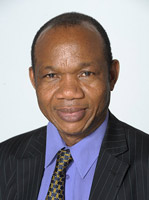 The project work ahead of researchers and practitioners remains how to make Green Technology Sustainability and e-Learning delivery using Assistive Systems sustainable for the purpose of achieving excellence in energy efficiency and usage, environmental considerations, energy re-use strategic models and virtual usability. The return on investment (ROI) as computational finance model may restore organisations with huge energy wastage without thinking of cost, environmental impact and carbon footprint/emissions.
The project work ahead of researchers and practitioners remains how to make Green Technology Sustainability and e-Learning delivery using Assistive Systems sustainable for the purpose of achieving excellence in energy efficiency and usage, environmental considerations, energy re-use strategic models and virtual usability. The return on investment (ROI) as computational finance model may restore organisations with huge energy wastage without thinking of cost, environmental impact and carbon footprint/emissions.
The Speaker
Ezendu holds the position of Visiting Professor, Gulf University, Bahrain, Visiting Professor, University of Lagos, Nigeria and Visiting Professor, Kano State Polytechnics, Nigeria as well as Visiting Affiliate of the Green IT Observatory, RIMT University, Australia and Visiting Affiliate of ICT University, USA. He also holds the position of Director - Technical and Non-Executive Director and Research Professor for Enterprise Projects at Sun Bio IT Solutions Pvt. Ltd, India; and Non-Executive Director and Professor of Business Enterprise Consultancy of ELITSER IT SOLUTIONS INDIA PVT LTD, Hyderabad – 500 038 Andhra Pradesh INDIA. He is also the Chair for the IEEE Consumer Electronics Chapter, United Kingdom & Republic of Ireland (UKRI) and Chair for the IEEE Broadcast Technology Chapter, UKRI. He is a Senior Member of Institute of Electrical & Electronic Engineers (SMIEE); Chartered FELLOW of the British Computer Society (CITP, FBCS), Fellow of the Institute of Information Technology Training (FIITT) and Fellow of the Higher Education Academy (FHEA).
David Guralnick
Kaleidoscope Learning New York, USA
Re-imagining Online Education: A Learner-Centered Approach
Online education has swiftly become more and more common in recent years, as people have embraced the ability to learn anytime, from anywhere. Advances in technology have made anytime, anywhere education a possibility in most areas of the world.
In addition to providing a wider audience with greater access to education, technology can help us greatly improve educational quality. Well-designed educational software has the potential to create a new educational paradigm--one that focuses on actively doing rather than passively listening, and one that is built around the social, intellectual, and emotional needs and preferences of the learners. The end result can be engaging, effective education that can help break down the current barriers between "school" and the "real world," and potentially alter the way that many children and adults view education.
In this session, I will describe a vision of online education that can meet the above goals, taking advantage of academic research in several areas, as well as the current and upcoming capabilities of both hardware (including mobile devices) and software. By drawing from academic research and past successes in education, and being open to re-evaluating traditional educational approaches, we can envision a new, progressive world of online learning.
The Speaker
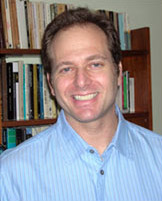 David Guralnick holds a Ph.D. in computer science from Northwestern University, where his work synthesized concepts from the fields of computer science, instructional design, and cognitive psychology. Dr. Guralnick designed and developed the first learn-by-doing simulation for corporate training use, as well as the first e-learning-specific authoring tool. Over the past 25 years, he has designed simulation-based training applications, electronic performance-support systems, a variety of online courses for business and university audiences, and specialized authoring tools which allow non-technical people, such as writers and trainers, to build e-learning sites. The cornerstone of Dr. Guralnick's design philosophy is the concept of content-driven, goal-driven design using the information and the needs of the end-users, rather than the technology, to lead the design process. Dr. Guralnick is president of New York-based Kaleidoscope Learning; president of the International E-Learning Association (IELA) and founding chair of the International E-Learning Awards; founding chair of ASTD-New York's E-learning Special Interest Group; a regular keynote speaker at international conferences; chair of the International Conference on E-Learning in the Workplace (ICELW); Senior Editor of the International Journal on Advanced Corporate Learning; and an Adjunct Professor at Columbia University. His work has been featured in Wired magazine, Training magazine (as an Editors Choice), and the Wall Street Journal, and he is the recipient of numerous e-learning design awards.
David Guralnick holds a Ph.D. in computer science from Northwestern University, where his work synthesized concepts from the fields of computer science, instructional design, and cognitive psychology. Dr. Guralnick designed and developed the first learn-by-doing simulation for corporate training use, as well as the first e-learning-specific authoring tool. Over the past 25 years, he has designed simulation-based training applications, electronic performance-support systems, a variety of online courses for business and university audiences, and specialized authoring tools which allow non-technical people, such as writers and trainers, to build e-learning sites. The cornerstone of Dr. Guralnick's design philosophy is the concept of content-driven, goal-driven design using the information and the needs of the end-users, rather than the technology, to lead the design process. Dr. Guralnick is president of New York-based Kaleidoscope Learning; president of the International E-Learning Association (IELA) and founding chair of the International E-Learning Awards; founding chair of ASTD-New York's E-learning Special Interest Group; a regular keynote speaker at international conferences; chair of the International Conference on E-Learning in the Workplace (ICELW); Senior Editor of the International Journal on Advanced Corporate Learning; and an Adjunct Professor at Columbia University. His work has been featured in Wired magazine, Training magazine (as an Editors Choice), and the Wall Street Journal, and he is the recipient of numerous e-learning design awards.
Hanno Hortsch
Dresden University of Technology, Germany
E-Didact
Development and Implementation of a
Postgraduate E-Learning and Further Education Course in "Engineering Education and Higher Education Didactics
 Following the tradition of more than 60 years in Engineering Education at TU Dresden the basic principles and topics of development and implementation of a new postgrad-uate e-learning and further education course in the field of Engineering Education will be explained and justified.
Following the tradition of more than 60 years in Engineering Education at TU Dresden the basic principles and topics of development and implementation of a new postgrad-uate e-learning and further education course in the field of Engineering Education will be explained and justified.
In many universities it can be stated that the success rates of engineering programs are not very successful; for instance, in Saxony it is about 48%. At the same time, however, predicts that the relevant education group, the students, by approximately 40% smaller. One oft the solution to the problem is a higher efficiency of programs. Therefore, a project has been currently developed that addresses in particular the in-crease in the quality of teaching. This project encompasses phases of needs analysis, curriculum and media development, implementation and testing as well as extensive documentation. It can be assumed that a systematic continuing education in the field of Engineering Education for the teaching staff was developed to improve higher educa-tion in engineering and science-teaching contributes significantly and increases the success rate.
Due to the nature of the postgraduate study e-learning phases are integrated into the program.
Mark Schulz
University of Queensland, Australia
Next Steps in the Development of Remote Laboratories?
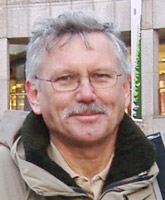 Remote laboratories have been developed for well over 20 years, but have not achieved widespread acceptance in that period. Focus over this time appears to have remained almost exclusively on the technical aspects of the control of equipment and the collection of measurements via a remote interface, and in comparison little study has done on the user interface to experiments using the equipment. Current user interfaces generally provide a unique portal into equipment, a portal that requires a group of users to cluster in physical proximity to the user interface. This talk proposes that remote laboratories need to mimic the interactions that are experienced when working with others in close proximity in a laboratory, with groups of learners collaborating around the user interface, but to extend this remote experience to students distributed geographically and each sharing a synchronized view of the user interface. This talk also will argue that an advanced and enhanced user interface can also better inform learners about what is happening inside an experiment, what is happening inside the equipment being used to perform the experiment, and is capable of providing richer feedback to the student. Suitably instrumented user interfaces can provide tools for experiment designers to collect data about how learners with different experiences and skills use a particular interface, and even to prompt different classes of users with procedures that more experienced users adopt. The talk will also look at one set of possibly technologies that may prove useful in this research. The hope is that these ides will stimulate research that leads to a much wider acceptance and use of remote laboratories in the educational sector. The aim for remote laboratories should be to provide a far richer experience than can be gained from just the use of physical equipment.
Remote laboratories have been developed for well over 20 years, but have not achieved widespread acceptance in that period. Focus over this time appears to have remained almost exclusively on the technical aspects of the control of equipment and the collection of measurements via a remote interface, and in comparison little study has done on the user interface to experiments using the equipment. Current user interfaces generally provide a unique portal into equipment, a portal that requires a group of users to cluster in physical proximity to the user interface. This talk proposes that remote laboratories need to mimic the interactions that are experienced when working with others in close proximity in a laboratory, with groups of learners collaborating around the user interface, but to extend this remote experience to students distributed geographically and each sharing a synchronized view of the user interface. This talk also will argue that an advanced and enhanced user interface can also better inform learners about what is happening inside an experiment, what is happening inside the equipment being used to perform the experiment, and is capable of providing richer feedback to the student. Suitably instrumented user interfaces can provide tools for experiment designers to collect data about how learners with different experiences and skills use a particular interface, and even to prompt different classes of users with procedures that more experienced users adopt. The talk will also look at one set of possibly technologies that may prove useful in this research. The hope is that these ides will stimulate research that leads to a much wider acceptance and use of remote laboratories in the educational sector. The aim for remote laboratories should be to provide a far richer experience than can be gained from just the use of physical equipment.
Alexander Soloviev
MADI, Moscow, Russia
New tasks of IGIP technical teacher training centres in Russia
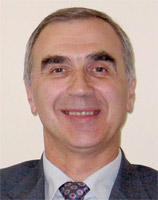 We discuss the modernized curriculum of the International Society for Engineering Education IGIP for training teachers of technical universities of international level. This plan was approved by the Executive Committee IGIP in March 2013. We keep in mind modern education principles:
We discuss the modernized curriculum of the International Society for Engineering Education IGIP for training teachers of technical universities of international level. This plan was approved by the Executive Committee IGIP in March 2013. We keep in mind modern education principles:
- implement a system of continuing education according the paradigm of "lifelong learning";
- development and implementation of Information Technologies in the educational process;
- implementation of individual trajectories in education: a modular approach to the formation of educational standards;
- the principle of sustainable development as a goal and an integral part of engineering education.
We agree with the mainstream of the curriculum modernization in the direction of greater choice freedom of educational paths during the training of engineering higher school teachers not touching core and theory modules. So we suggest special content of the modules of the curriculum in relation to the peculiarities of Russian Engineering Education Training Centers. In particular, it is pointed to the possibility of reducing the amount of philosophical, economic, ecological and sociological training (that does not detract from its importance in our day), and the transfer of the "center of gravity" in the area of information technologies as a subject to learn and a teaching method.
